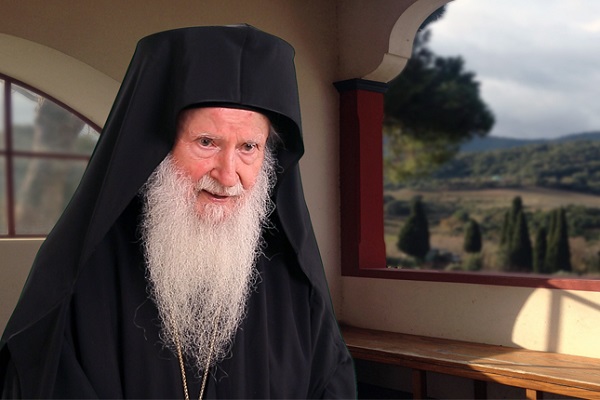Sermon on the Apostolic reading for the 4th Sunday of Great Lent (Hebrews 6:13-20)
7 April 2019In today’s reading from the Apostle Paul’s Letter to the Hebrews, we are urged to be firm in our belief that God’s promises will not be broken.
People often promise things and then fail to do them. Sometimes, a person simply forgets to do it. Another reason may be that a serious problem or issue has arisen, rendering the fulfillment of the promise impossible. Finally, a person may have vowed to do something that they later realize goes against their own interests, with the result being that they do everything possible to break the promise.
With God, it is very different. He is not hindered by human weaknesses. God never forgets or fails to do anything He says, because He is Almighty. God cannot promise something and not do it, as “God is true” (John 3:33). It is impossible for God to lie to us.

To illustrate this key point (that God would never lie to us), the Apostle Paul chose to recall an example from the Old Testament, one that proves the surety of God’s promises. In these instances, human logic cannot see the possibility of God’s word. But we know that, “for with God nothing will be impossible” (Luke 1:37). The Archangel Gabriel assures us, certainly knowing God much better than we do.
The promise that Saint Paul chose to write about is the one given to Abraham. At that time, Abraham was 100 years old, and with his wife Sarah beyond the age of child bearing. Sarah did not bear any children in all those years. Despite this, God promised to Abraham: “Sarah your wife shall have a son” (Genesis 18:10); and “Abraham shall surely become a great and populous nation” (Genesis 18:18). God gave such a promise to Abraham and later said: “I will certainly bless you and assuredly multiply your seed as the stars of heaven” (Genesis 22:17).
Can the human mind grasp such an amazing thing? Having a child at that age? For Abraham, who had past experiences with God due to his relationship with Him, believed in what he was told. Even when God asked Abraham to sacrifice their only son Isaac, his trust in God was unshaken. Isaac was Abraham’s heir and hope for descendants. Another person may have doubted, thinking: God promised me many offspring! Look at how old I was when I finally had a child. Now He tells me to do this?! If I sacrifice him, where will these many descendants come from? What about God’s promise?! Abraham had no such thoughts. With all his heart, he accepted What God told him, with absolute certainty that God would keep His promise. Abraham did this, even without understanding why God was asking this of him. As we know from the Old Testament, everything that God had promised to Abraham-and in many other things-was truly realized.
The Apostle Paul wants us to take Abraham as our example. Some of what we hear about the promises of God may seem incomprehensible and impossible. This is because we limit ourselves to human understanding. God’s actions go beyond human logic and reasoning. Just because we don’t understand it, doesn’t mean that it is absurd or unreasonable. God acts in ways that the human mind can’t grasp. Look at the operation of the radar. Different types of radar vary in range. It detects objects in the sky at a distance. When those objects move beyond the range of the radar, they are no longer detectable. This doesn’t mean that those objects no longer exist, but that they are out of range. It is similar with the human mind. It has a limited “range” and can only understand so much. With God, there are no limits. Human reasoning fails here, which is where faith takes over. Trust in God. That is where God, who is Almighty, “Pansophos” (full of wisdom), and full of love for humanity, can be truly realized.
As we have heard, Saint Paul likens this faith to an anchor. Just as the anchor stabilizes the ship and holds it in place while in the harbor (keeping it from drifting with the winds and waves), so too faith in God’s promises protect us. It keeps us safe from the doubts and traps that we fall into, resulting in great mental and spiritual anguish. The Apostle concludes: “We -who have been redeemed God- might have strong consolation, who have fled for refuge to lay hold of the hope set before us. This hope we have as an anchor of the soul, both sure and steadfast …-and leading us to the heavens- where the forerunner has entered for us, even Jesus, having become High Priest forever”(from verses 18-20).
My brothers and sisters, don’t listen to what atheists or skeptics may say or write, namely that there is no other life and this is all there is. Leave people who live without hope, and pay no attention to their words. The Apostle Jude urges us: But you, beloved, building yourselves up on your most holy faith…looking for the mercy of our Lord Jesus Christ, who will give us eternal life (Jude 1:20-21). That is my wish for all of you.






